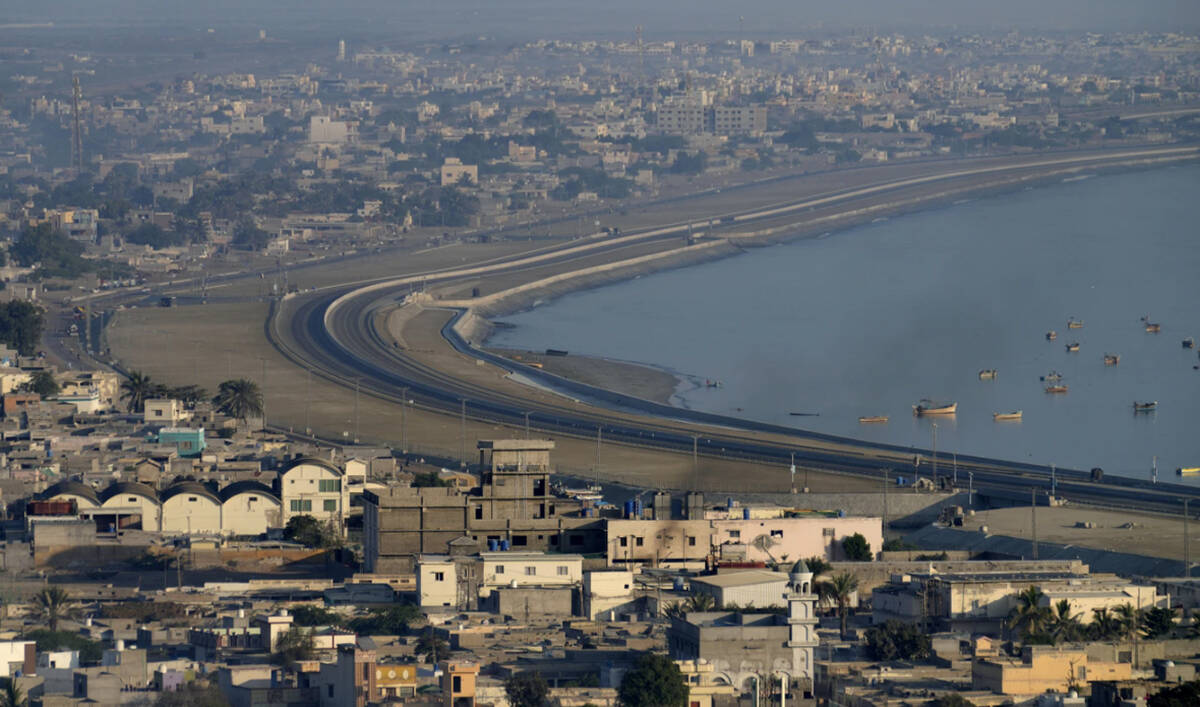KARACHI: The historic high inflation in Pakistan is hitting the poor and creating “unprecedented” hardships for the low-income groups, financial experts said on Friday, adding the situation has forced masses to spend much of their income on food.
The South Asian nation has been witnessing an increase in the inflation rate since late last year when the government took prior actions to comply with the conditions set by the International Monetary Fund (IMF) to revive a stalled $7 billion bailout program., stalled since November.
Pakistan reported 38 percent inflation in May as compared to 36.4 percent in April, on the back of rising food and energy prices and a massive currency devaluation. The Pakistani currency has devalued by around 30 percent since last June and played a major role in piling up the inflationary pressure.
Food inflation in May rose by 48.65 percent on an annual basis, driven by an uptick in prices of tea that increased by 112.18 percent, potatoes 108.17 percent, wheat flour 99.02 percent and eggs by 90.27 percent, according to the Pakistan Bureau of Statistics (PBS).
“The record high inflation in Pakistan, in fact hyperinflation, in food item is affecting the financially vulnerable population creating unprecedented hardships for them, especially those living in rural and remote areas,” Dr. Ikramul Haq, a Lahore-based economist, told Arab News.
Haq said the high cost of utilities, nearly 25 percent borrowing rate and extractive taxes were pushing businesses to raise the prices.
“Many are even closing down due to these factors pushing unemployment that is badly affecting the poor and the low-income groups,” he added.
Haq said the stagnant economy and disrupted supply chains due to continued embargo on imports is a “sure recipe” for disaster for the vast majority of the population, especially those living below the poverty line.
Dr. Khaqan Najeeb, a former adviser to the Pakistani finance ministry, identified supply constraints, currency devaluation and hoarding as the key elements pushing the inflation rate up.
“This, of course, is unprecedented and affects the middle-, low-income and the vulnerable the most as more of their income is spent on food items,” Najeeb said.
Families affected by the rising inflation say they have made a drastic cut in their kitchen spending and are focusing only on most essential items.
“We have cut down on some of the kitchen items, including cheese, bakery items and cereals,” said Fatima Ali, a housewife. “We have also reduced the quantity of items to strike a balance between income and expenditures.”
As the inflationary pressure continues to build up, people falling in the low-income group say the high inflation rate has deprived them of some of the protein-rich food items.
“We can’t think of mutton now,” said Ali Raza, an office assistant. “The prices of chicken are also getting out of our purchasing power so we have reduced purchasing.”
As Pakistan’s Finance Minister Ishaq Dar prepares to present budget for the next fiscal year, financial experts expect the government to take steps to mitigate the suffering of low-income groups.
“The mitigation aspects in the budget could be three in my opinion,” Najeeb said. “Substantial increase in the income-support program, rise in minimum wage, and increase in pensions and wages of the federal and provincial government employees, with the private sector following suit.”
Analysts hope that inflation would gradually start declining this month.
“We anticipate monthly inflation to soften from June 2023 and gradually decline over the next 12 months, majorly because of base effect along with tight monetary and fiscal policy,” Muhammad Sohail, CEO of Karachi-based Topline Securities brokerage house, told Arab News.
“Petrol and diesel prices were reduced by 7-12 percent in May 2023. This will also ease inflation in the coming months, unless any major pressure is seen on rupee.”

















